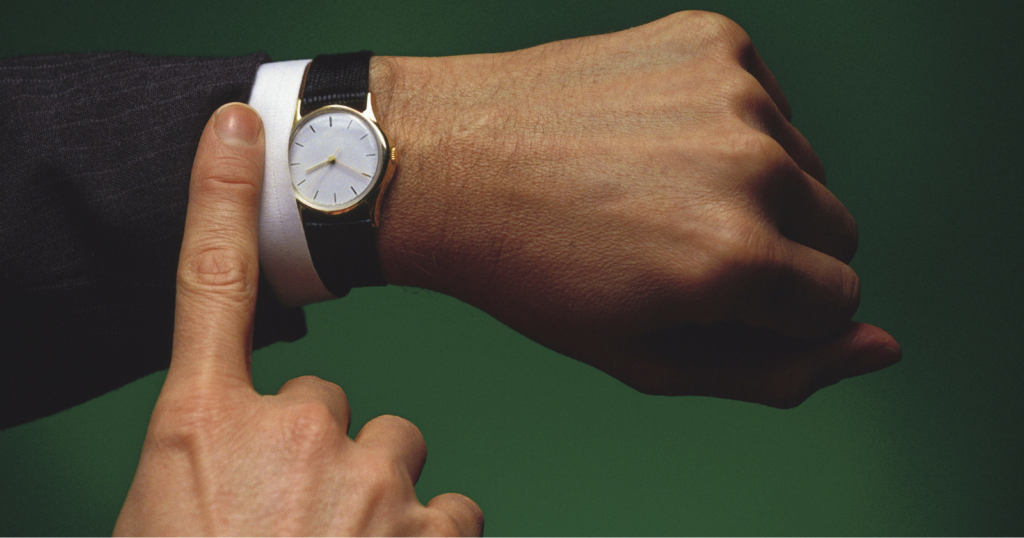You glance at the clock. It’s 3:17.
You turn around, grab your coffee, and someone asks, “What time is it?”
No idea.
Sound familiar?
You’re not alone. I’ve caught myself doing it more times than I care to admit. In fact, I once looked at my watch three times in a row while waiting for a bus, and still had to ask someone if it was running late.
At first, I chalked it up to distraction. But the more I thought about it, the more I realized—it says something deeper about how a person processes the world.
Over the years, I’ve come to believe that folks who do this often share a handful of curious, even admirable traits. It’s not forgetfulness. It’s something else entirely.
Let’s get into it.
1. Their minds are always one step ahead
People who forget the time right after checking it aren’t absentminded—they’re usually deep thinkers.
They might be checking the clock, but mentally they’re somewhere else entirely. Planning, processing, problem-solving. Their minds shift gears so fast, the information doesn’t stick.
I’ve mentioned this before, but my oldest grandson is this way. Ask him what time it is, and he’ll look at his phone—but by the time he answers, he’s already thinking about something else. Robotics, school projects, the new food brand he’s researching for my dog Lottie.
Some folks just live in a fast-moving brain.
2. They don’t live their life by the minute
These folks tend to operate more on rhythm than schedule. They’re not obsessed with precision. A few minutes here or there doesn’t throw them off.
This can make them flexible, easygoing, and a little unconventional.
One of my old neighbors, a painter, never wore a watch. He once said, “I check the time to know the general shape of the day, not the details.” And then he’d go back to mixing colors like time didn’t apply to him at all.
There’s something quietly freeing about that.
3. They’re easily absorbed in the present
People who forget the time right after seeing it are often people who slip easily into the moment.
They might get distracted by a scent, a song, a passing thought. Their attention can be a bit fluid—but that’s not a flaw.
It means they’re responsive. They notice things.
I once walked into a café and sat near a woman reading a book, sipping her tea. She looked at her phone, smiled, and put it down. Five minutes later, I asked for the time, and she laughed: “I just looked—but then the light hit the table so beautifully I forgot what I saw.”
That’s someone who knows how to be present.
4. They’re more interested in meaning than measurement
Time, for some people, is just a number.
But for others, what matters is what’s happening within that time. They’re thinking about how they feel, what the moment means, what they need next.
So they check the time—but their brain immediately jumps to, “Do I have enough space for this task?” or “Am I ready for that conversation?”
The number on the screen becomes a backdrop—not the headline.
5. They may be mentally overstimulated
Now, I won’t pretend to have it all figured out, but I’ve noticed that folks who forget things quickly—like the time—are often juggling more in their minds than they realize.
It’s not forgetfulness. It’s overload.
When your brain is busy managing a dozen tabs—work stress, family dynamics, meal planning, health issues—it starts pushing out non-essential data.
And let’s face it, if you’re already running late, remembering the exact minute isn’t your top priority.
6. They have strong intuition
These are people who often feel their way through the day.
They can tell when it’s time to wrap up a conversation, when the weather’s about to shift, or when they need to step outside for air. They’re guided more by instinct than the clock.
I remember chatting with an old friend at a farmers market. He glanced at his watch and immediately turned to leave. “You know what,” he said, “my wife’s going to call in two minutes. I don’t know how I know, but I just do.”
Sure enough—his phone rang as he was walking off.
People like this trust their gut more than they trust a number.
7. They’ve likely got a creative streak
Writers, musicians, designers, inventors—they’re known for drifting in and out of time.
For them, time isn’t a ruler. It’s a suggestion.
You check the clock, but then an idea hits—and suddenly you’re three layers deep in thought. The time was just a passing moment, not something you needed to hold onto.
I’ve had that experience while writing, actually. I’d glance at the clock, think I had 20 minutes left to work, then blink and realize an hour had flown by. It’s a gift, in a way.
8. They experience moments holistically
Some folks don’t separate life into strict categories. They experience time, emotion, sensory input, and memory all at once.
So they check the time—but at the same moment, they hear birdsong, smell coffee, remember a line from a book, and wonder if they’ve texted their daughter back.
The time gets swept up in the current.
I once saw this described in a book as “blended perception.” And I thought, “Yes—that’s what it feels like when you live through all your senses at once.”
9. They don’t obsess over control
People who check the time and forget it don’t usually need to own the moment. They’re not micromanagers of the day.
They know they’ll get where they’re going. Maybe five minutes late. Maybe ten minutes early. But they’ll get there.
This makes them more relaxed in group settings (though maybe slightly frustrating to more punctual friends). They go with the flow—not because they’re careless, but because they trust the rhythm of the day.
10. They’re quietly introspective
The folks who forget what time it is tend to be the ones thinking more about why something matters than when it happens.
They’re internal processors. They think deeply, even if they don’t always say it out loud.
These are the people who linger in conversations long after they end. Who remember how a moment felt more than what hour it took place.
They may not track time well—but they hold onto meaning in ways that matter even more.
Final thoughts
Look, I’m the first to admit I don’t know everything, but I’ve noticed this: forgetfulness isn’t always a flaw. Sometimes, it’s a clue.
If you or someone you know checks the time and immediately forgets it, don’t rush to fix it. Maybe they’re not scattered. Maybe they’re just wired differently—more intuitive, more curious, more attuned to what’s unfolding around them.
Because life isn’t just about keeping track of minutes. It’s about paying attention to the moments worth remembering.
And sometimes, those are the ones that don’t need a timestamp at all.
















